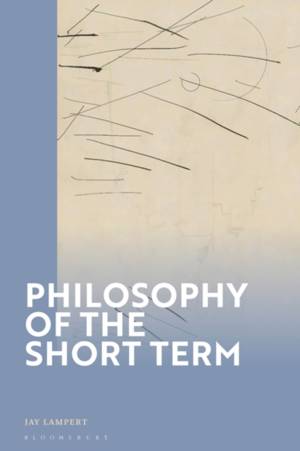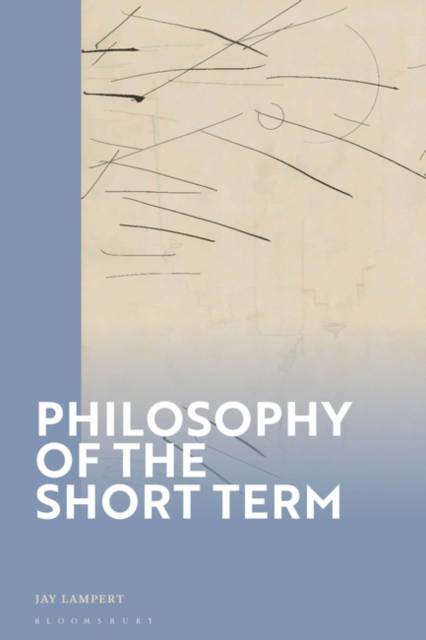
Je cadeautjes zeker op tijd in huis hebben voor de feestdagen? Kom langs in onze winkels en vind het perfecte geschenk!
- Afhalen na 1 uur in een winkel met voorraad
- Gratis thuislevering in België vanaf € 30
- Ruim aanbod met 7 miljoen producten
Je cadeautjes zeker op tijd in huis hebben voor de feestdagen? Kom langs in onze winkels en vind het perfecte geschenk!
- Afhalen na 1 uur in een winkel met voorraad
- Gratis thuislevering in België vanaf € 30
- Ruim aanbod met 7 miljoen producten
Zoeken
Omschrijving
The concept of the short term involves a complex network of quantitative, qualitative, and operational ideas. It is essential everywhere from the ontology of time, to the science of memory, to the preservation of art, to emotional life, to the practice of ethics. But what does the idea of the short term mean? What makes a temporal term short? What makes a time segment terminate? Is the short term a quantitative idea, or a qualitative or functional idea? When is it a good idea to understand events as short term events, and when is it a good idea to make decisions based on the short term? What does it mean for the nature of time if some of it can be short?
Jay Lampertexplores these questions in depth and makes use of the resources of short (as well as long) term processes in order to develop best temporal practices in ethical, aesthetic, epistemological, and metaphysical activities, both theoretical and practical. The methodology develops ideas based on the history of philosophy (from Plato to Hegel to Husserl to Deleuze), interdisciplinary studies (from cognitive science to poetics), and practical spheres where short term practices have been studied extensively (from short term psychotherapy to short term financial investments). Philosophy of the Short Term is the first book to deal systematically with the concept of the short term.
Jay Lampertexplores these questions in depth and makes use of the resources of short (as well as long) term processes in order to develop best temporal practices in ethical, aesthetic, epistemological, and metaphysical activities, both theoretical and practical. The methodology develops ideas based on the history of philosophy (from Plato to Hegel to Husserl to Deleuze), interdisciplinary studies (from cognitive science to poetics), and practical spheres where short term practices have been studied extensively (from short term psychotherapy to short term financial investments). Philosophy of the Short Term is the first book to deal systematically with the concept of the short term.
Specificaties
Betrokkenen
- Auteur(s):
- Uitgeverij:
Inhoud
- Aantal bladzijden:
- 256
- Taal:
- Engels
Eigenschappen
- Productcode (EAN):
- 9781350347960
- Verschijningsdatum:
- 25/01/2024
- Uitvoering:
- Hardcover
- Formaat:
- Genaaid
- Afmetingen:
- 156 mm x 234 mm
- Gewicht:
- 535 g

Alleen bij Standaard Boekhandel
+ 390 punten op je klantenkaart van Standaard Boekhandel
Beoordelingen
We publiceren alleen reviews die voldoen aan de voorwaarden voor reviews. Bekijk onze voorwaarden voor reviews.









